Reishi Spores: The Gold Standard of Medicinal Mushroom Supplements
What Are Reishi Spores?
Reishi spores are the reproductive cells of the Ganoderma lucidum mushroom, commonly known as reishi or lingzhi. These microscopic, seed-like particles contain the genetic material necessary for the mushroom to reproduce. Released from the underside of mature reishi mushroom caps, these spores are considered the most potent and concentrated form of reishi's beneficial compounds. Their golden-brown color has earned them the nickname "golden spores" in traditional Chinese medicine, where they've been prized for centuries as a superior health supplement.
The spores are protected by a double-layered shell with a hard chitinous outer wall, which presents a challenge for both harvesting and human consumption. This hard outer shell is difficult for our digestive system to break down, which is why quality reishi spore supplements undergo a "shell-breaking" process to make their bioactive compounds more accessible.
The Extraordinary Composition of Reishi Spores
Reishi spores contain a remarkable concentration of bioactive compounds, significantly higher than what's found in the mushroom body itself. These include:
-
Triterpenes: These bitter compounds are responsible for many of reishi's health benefits, including their adaptogenic and liver-protective properties. Reishi spores contain up to 20 times more triterpenes than the mushroom body.
-
Polysaccharides: Complex carbohydrates that support immune function and have been studied for their potential anti-tumor effects.
-
Ganoderic acids: Unique compounds exclusive to the Ganoderma genus that have demonstrated anti-inflammatory, antiviral, and hepatoprotective effects in research.
-
Beta-glucans: Specialized polysaccharides that modulate immune function and may help reduce inflammation.
-
Sterols: Plant compounds structurally similar to cholesterol that may help maintain healthy cholesterol levels.
-
Proteins and amino acids: Building blocks that support overall health and cellular function.
-
Nucleotides: Compounds involved in cellular energy production and DNA repair.
This concentrated nutritional profile explains why reishi spores are often considered the premium form of reishi supplementation.

10 Evidence-Based Benefits of Reishi Spores
Immune System Enhancement
Reishi spores have demonstrated significant immune-modulating properties through several mechanisms:
-
Macrophage activation: Studies show reishi spores can stimulate macrophages, a type of white blood cell that engulfs and destroys pathogens, cancer cells, and cellular debris.
-
NK cell function: Natural Killer cells, critical components of our innate immune system, appear to be activated by compounds in reishi spores.
-
Cytokine regulation: Reishi spores help balance the production of cytokines, signaling proteins that coordinate immune responses.
-
Adaptive immunity support: Research suggests improvements in both T-cell and B-cell function, key components of our targeted immune response.
These immunological benefits make reishi spores particularly valuable during cold and flu season or periods of heightened immune stress.
Stress Reduction and Adaptogenic Effects
Reishi spores are classified as adaptogens, substances that help the body resist various stressors. Their adaptogenic benefits include:
-
Cortisol regulation: Studies suggest reishi spores may help normalize cortisol levels, our primary stress hormone.
-
HPA axis support: The hypothalamic-pituitary-adrenal axis, our central stress response system, appears to be modulated by reishi compounds.
-
Improved stress resilience: Regular consumption may help the body adapt more effectively to both physical and psychological stressors.
-
Fatigue reduction: Research indicates decreased fatigue and improved energy in subjects taking reishi supplements.
Many users report a sense of calm and improved stress management when taking reishi spore supplements regularly.
Sleep Quality Improvement
Reishi has been traditionally used to promote restful sleep, and spores may offer enhanced benefits:
-
Natural sedative effects: Certain triterpenes in reishi spores appear to have mild sedative properties without causing grogginess.
-
Improved sleep duration: Some studies report increased total sleep time in subjects using reishi supplements.
-
Enhanced sleep quality: Users often report deeper, more restorative sleep cycles.
-
Dream enhancement: Interestingly, some traditional uses mention enhanced dream recall and lucid dreaming potential.
These sleep benefits may be related to reishi's effects on the nervous system and stress hormone regulation.
Cardiovascular Support
Research suggests reishi spores may benefit heart health through multiple mechanisms:
-
Cholesterol modulation: Studies indicate potential for improving the LDL/HDL cholesterol ratio.
-
Blood pressure regulation: Some research shows modest blood pressure-lowering effects.
-
Antioxidant protection: The compounds in reishi spores help protect blood vessels from oxidative damage.
-
Anti-inflammatory effects: Chronic inflammation is a key factor in heart disease, which reishi spores may help mitigate.
These cardiovascular benefits develop gradually with consistent use over time.
Liver Protection and Detoxification
The liver-supportive properties of reishi spores have been documented in multiple studies:
-
Hepatoprotective effects: Research shows reishi compounds can help protect liver cells from various toxins.
-
Enzyme normalization: Studies indicate improved liver enzyme profiles in patients with liver conditions.
-
Enhanced detoxification: Reishi appears to support the liver's natural detoxification processes.
-
Regenerative potential: Some research suggests reishi may support the liver's remarkable ability to regenerate damaged tissue.
This makes reishi spores particularly valuable in our modern world of environmental toxins and processed foods.
Anti-Aging and Longevity Support
Reishi has been called the "mushroom of immortality" in traditional Chinese medicine, and research on its spores suggests several anti-aging mechanisms:
-
DNA protection: Compounds in reishi spores appear to help protect cellular DNA from damage.
-
Telomere support: Some preliminary research suggests potential benefits for telomeres, the protective caps on our chromosomes that shorten with age.
-
Cellular regeneration: Certain compounds may support the body's natural cell renewal processes.
-
Oxidative stress reduction: The potent antioxidants in reishi spores help neutralize free radicals that accelerate aging.
While no supplement can stop the aging process, reishi spores may help support healthier aging.
Mental Clarity and Cognitive Function
Reishi spores appear to offer several benefits for brain health:
-
Neuroprotection: Research suggests reishi compounds may help protect brain cells from damage.
-
Reduced brain inflammation: Neuroinflammation is implicated in many cognitive disorders, which reishi may help address.
-
Improved focus: Many users report enhanced concentration and mental clarity.
-
Mood stabilization: The adaptogenic properties may contribute to more balanced emotional states.
These cognitive benefits are often noted after several weeks of consistent use.
Respiratory System Support
Reishi has been traditionally used for respiratory conditions, and its spores may offer enhanced benefits:
-
Bronchodilation: Some research suggests mild bronchodilatory effects, helping to open airway passages.
-
Anti-allergic properties: Studies indicate potential antihistamine-like effects that may help with allergic respiratory conditions.
-
Reduced inflammation: Respiratory inflammation, common in conditions like asthma, may be reduced.
-
Improved oxygen utilization: Some traditional uses suggest enhanced oxygen efficiency at the cellular level.
These respiratory benefits have made reishi popular among those with seasonal allergies and mild asthma.
Anti-Cancer Potential
While more research is needed, preliminary studies on reishi spores show several promising anti-cancer mechanisms:
-
Apoptosis induction: Research suggests certain compounds may trigger programmed cell death in cancer cells while sparing healthy cells.
-
Anti-angiogenesis: Some studies indicate reishi may inhibit the formation of new blood vessels that tumors need to grow.
-
Immune surveillance enhancement: By boosting immune function, reishi may help the body identify and eliminate cancer cells more effectively.
-
Synergistic effects with treatment: Some research suggests reishi may enhance the effectiveness of conventional cancer treatments.
It's important to note that while promising, reishi should be considered a complementary approach, not a replacement for conventional cancer treatment.
Blood Sugar Regulation
Emerging research suggests reishi spores may help support healthy blood sugar levels:
-
Improved insulin sensitivity: Some studies indicate enhanced cellular response to insulin.
-
Reduced glucose absorption: Certain compounds may help moderate the absorption of sugar from the digestive tract.
-
Pancreatic support: Research suggests potential protective effects for insulin-producing beta cells.
-
Antioxidant protection: The antioxidants in reishi spores may help protect against oxidative damage associated with blood sugar fluctuations.
These properties make reishi spores of interest to those concerned about maintaining healthy blood sugar levels.
How to Use Reishi Spores for Maximum Benefits
Recommended Dosage
The optimal dosage of reishi spores can vary based on the specific product and individual needs:
-
Standard preventative dose: Typically 1-2 grams of shell-broken reishi spores daily.
-
Therapeutic dose: Some practitioners recommend 2-5 grams daily for specific health concerns.
-
Reishi spore oil: If using the oil extract, a typical dose is 1-3 ml daily.
-
Cycling protocol: Some experts recommend taking reishi spores for 4-6 weeks, followed by a 1-2 week break for optimal long-term results.
As with any supplement, it's advisable to start with a lower dose and gradually increase as needed.
Best Times for Consumption
The timing of reishi spore supplementation can impact its effects:
-
Evening consumption: Taking reishi spores 1-2 hours before bedtime can enhance its sleep-promoting properties.
-
With meals: Taking reishi with food can improve absorption and reduce the chance of digestive discomfort.
-
Consistent timing: For adaptogenic effects, taking reishi at the same time each day helps establish a consistent biological rhythm.
-
Stress response: Some users take an additional dose during periods of acute stress for enhanced adaptogenic support.
Individual responses vary, so finding your optimal timing may require some experimentation.
Forms of Reishi Spores
Reishi spores are available in several forms, each with distinct advantages:
-
Broken-shell spore powder: The most common form, with increased bioavailability due to the breaking of the tough outer shell.
-
Reishi spore oil: A concentrated extract obtained by pressing broken spores, containing high levels of triterpenes.
-
Dual-extract spore products: Combines water and alcohol extraction methods to capture both water-soluble polysaccharides and alcohol-soluble triterpenes.
-
Encapsulated spores: Convenient capsule form that masks the bitter taste.
-
Spore-infused products: Includes spores in combination with other herbs or mushrooms for synergistic effects.
The broken-shell powder and spore oil are generally considered the most potent forms.
Synergistic Combinations
Reishi spores pair well with certain supplements and herbs for enhanced benefits:
-
Other medicinal mushrooms: Combining with cordyceps (for energy), lion's mane (for cognitive function), or turkey tail (for immune support) can create synergistic effects.
-
Adaptogenic herbs: Ashwagandha, rhodiola, or holy basil complement reishi's stress-management properties.
-
Vitamin D: Enhances reishi's immune-modulating effects.
-
Antioxidant-rich herbs: Combines well with turmeric, green tea, or milk thistle for enhanced liver support and antioxidant protection.
These combinations allow for customized approaches to specific health goals.

How to Select High-Quality Reishi Spore Products
Key Quality Indicators
Not all reishi spore products are created equal. Look for:
-
Shell-breaking technology: Confirmation that the product uses broken-shell spores for enhanced bioavailability.
-
Triterpene content: Higher triterpene levels (typically 2-5%) indicate a more potent product.
-
Organically grown: Ensures the mushrooms were cultivated without pesticides or heavy metals.
-
Wild-crafted vs. cultivated: Both can be quality sources, though wild-crafted is traditionally preferred but more expensive.
-
Extraction method: Dual-extraction processes (water and alcohol) capture the full spectrum of beneficial compounds.
-
Third-party testing: Verification of potency and purity by independent laboratories.
-
Sustainability practices: Ethical harvesting and cultivation methods ensure ecological responsibility.
These indicators help ensure you're getting an effective and pure product.
Red Flags to Watch For
Avoid products with these concerning characteristics:
-
Unbroken spores: Products that don't specify "broken-shell" may have poor bioavailability.
-
Fillers and additives: Some low-quality products use fillers like grains or starch to increase volume.
-
Irradiation: Some imported mushroom products undergo irradiation, which may degrade bioactive compounds.
-
Exaggerated claims: Be wary of products that promise miraculous or immediate results.
-
Very low pricing: Quality reishi spore products are relatively expensive to produce properly; suspiciously cheap products often indicate lower quality.
-
Lack of transparency: Companies should be forthcoming about their sourcing, testing, and processing methods.
Taking time to research brands can help ensure you're getting an authentic, effective product.
Reishi Spores vs. Other Forms of Reishi
Comparing Potency and Benefits
Different forms of reishi offer varying levels of bioactive compounds:
-
Reishi spores: Contain the highest concentration of triterpenes and ganoderic acids, considered the most potent form.
-
Reishi fruiting body: The actual mushroom contains beneficial compounds but at lower concentrations than the spores.
-
Mycelium: The vegetative part of the fungus typically grown on grain; generally contains lower levels of active compounds than the fruiting body or spores.
-
Reishi extracts: Quality varies widely depending on the extraction process; dual water/alcohol extracts capture more compounds than single-extraction methods.
For therapeutic purposes, spores and dual-extracts of the fruiting body are generally preferred.
Cost-Benefit Analysis
While reishi spores are typically more expensive than other forms, their concentrated nature may offer better value:
-
Initial investment: Spore products cost more upfront but may require smaller doses.
-
Bioavailability factor: Broken-shell spores offer enhanced absorption, potentially improving cost-effectiveness.
-
Therapeutic threshold: Lower-cost products may require larger doses to achieve the same effect, offsetting apparent savings.
-
Long-term value: Higher potency may translate to more significant health benefits over time, providing better overall value despite higher initial cost.
For preventative or mild supportive use, quality fruiting body extracts may be sufficient, while therapeutic applications might warrant the investment in spore products.
The History and Traditional Use of Reishi Spores
Ancient Chinese Medicine Practices
Reishi has one of the longest recorded histories of medicinal use:
-
Imperial exclusivity: For much of Chinese history, reishi was reserved exclusively for the emperor and nobility.
-
Taoism connection: Reishi was revered by Taoist monks seeking longevity and spiritual enhancement.
-
Traditional categories: Classical Chinese texts describe six different colors of reishi, each with specific properties, with red reishi (the most common today) being most prized.
-
Ancient texts: Reishi appears in the Shennong Ben Cao Jing, a 2,000-year-old pharmacopeia, where it was classified as a superior herb that could be taken continuously without side effects.
While the fruiting body was more commonly used historically, the concentrated benefits of spores became more appreciated as harvesting techniques advanced.
Modern Scientific Validation
Contemporary research has begun validating traditional claims:
-
Immunological research: Modern studies confirm reishi's immune-modulating properties.
-
Adaptogenic confirmation: Research supports traditional claims about stress-management benefits.
-
Novel discoveries: Science has identified specific compounds and mechanisms unknown to ancient practitioners.
-
Clinical applications: Emerging clinical research is exploring reishi's potential in supporting conventional treatments for various conditions.
This convergence of ancient wisdom and modern science has fueled reishi's growing popularity worldwide.
Potential Side Effects and Precautions
Possible Adverse Reactions
While generally considered safe, some individuals may experience:
-
Digestive discomfort: Mild stomach upset, diarrhea, or digestive disturbances, especially when first beginning supplementation.
-
Dry mouth: Some users report temporary dry mouth or throat.
-
Skin rash: Rare allergic reactions may occur in sensitive individuals.
-
Blood-thinning effects: Reishi's natural anticoagulant properties may increase bleeding risk in some individuals.
These effects are typically mild and transient, often resolving as the body adjusts to the supplement.
Who Should Exercise Caution
Certain groups should consult healthcare providers before using reishi spores:
-
People on blood-thinning medications: Potential interaction with anticoagulant drugs.
-
Those with bleeding disorders: The anticoagulant effects may be problematic.
-
Individuals with low blood pressure: Reishi may further lower blood pressure.
-
Pregnant or breastfeeding women: Due to insufficient safety data.
-
Pre-surgery patients: Should discontinue use at least two weeks before scheduled surgeries.
-
Immunosuppressed individuals: The immune-modulating effects could potentially interfere with immunosuppressive medications.
As with any supplement, consultation with healthcare providers is advisable, especially for those with existing health conditions.
Frequently Asked Questions About Reishi Spores
How Long Does It Take to Experience Benefits?
The timeline for experiencing effects varies based on individual factors and health goals:
-
Acute effects: Some users report improved sleep and reduced stress within days of beginning supplementation.
-
Immune benefits: Changes in immune function may be noticeable within 2-4 weeks.
-
Adaptogenic effects: Full stress-management benefits typically develop over 1-3 months of consistent use.
-
Long-term benefits: Some effects, particularly those related to longevity and anti-aging, may take 6 months or longer of regular use to fully manifest.
Consistency is key – reishi spores work best when taken regularly over extended periods.
Can Reishi Spores Be Taken With Medications?
Potential interactions are an important consideration:
-
Blood-thinning medications: Caution with warfarin, aspirin, and other anticoagulants due to potential additive effects.
-
Blood pressure medications: May enhance the effects of antihypertensive drugs.
-
Immunosuppressants: Possible interference with drugs like cyclosporine or corticosteroids.
-
Diabetes medications: May enhance blood sugar-lowering effects.
Always consult with healthcare providers about potential interactions with specific medications.
Are There Any Performance Benefits for Athletes?
Emerging research suggests several potential benefits for active individuals:
-
Improved recovery: Anti-inflammatory properties may help reduce exercise-induced inflammation and soreness.
-
Enhanced stamina: Some studies suggest improved oxygen utilization and endurance.
-
Stress resilience: Adaptogenic effects may help the body manage physical training stress more effectively.
-
Immune protection: May help maintain immune function during intense training periods when immune suppression often occurs.
These potential benefits have made reishi increasingly popular in sports nutrition.
Conclusion: Incorporating Reishi Spores Into Your Wellness Routine
Reishi spores represent the gold standard of this revered medicinal mushroom's power. Their concentrated bioactive compounds offer a wide spectrum of health benefits, from immune support and stress management to longevity and cognitive enhancement.
When selecting a reishi spore product, quality matters significantly – look for broken-shell spores with verified triterpene content from reputable suppliers committed to sustainable practices and rigorous testing.
While reishi spores are generally safe for most people, those with specific health conditions or on certain medications should exercise caution and consult healthcare providers before beginning supplementation.
Like most natural supplements, reishi spores work best as part of a comprehensive wellness approach that includes proper nutrition, regular physical activity, stress management, and adequate sleep. Their subtle yet profound effects typically develop over time with consistent use, making them an excellent addition to long-term health strategies.
Whether you're seeking immune resilience, stress relief, better sleep, or support for healthy aging, reishi spores offer a time-tested, increasingly science-backed option worth considering for your wellness toolkit.



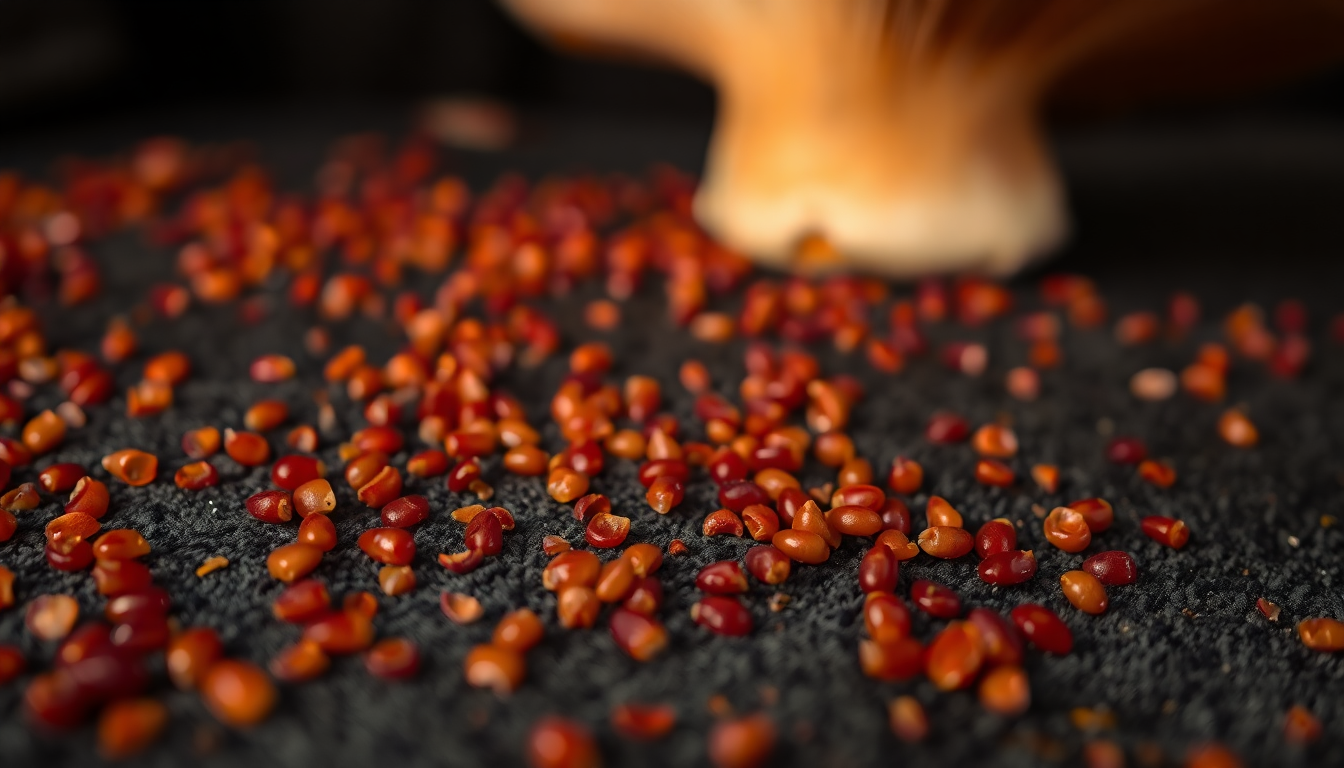

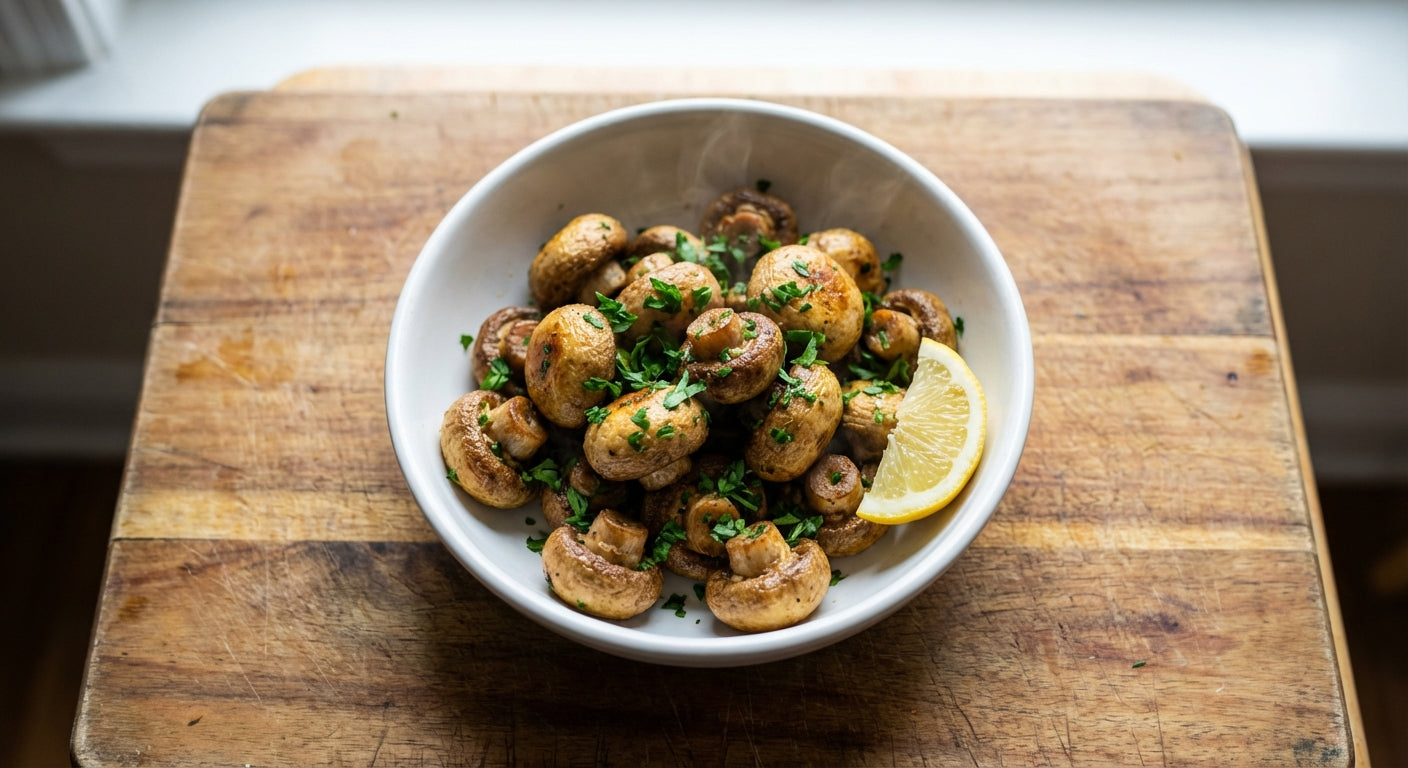


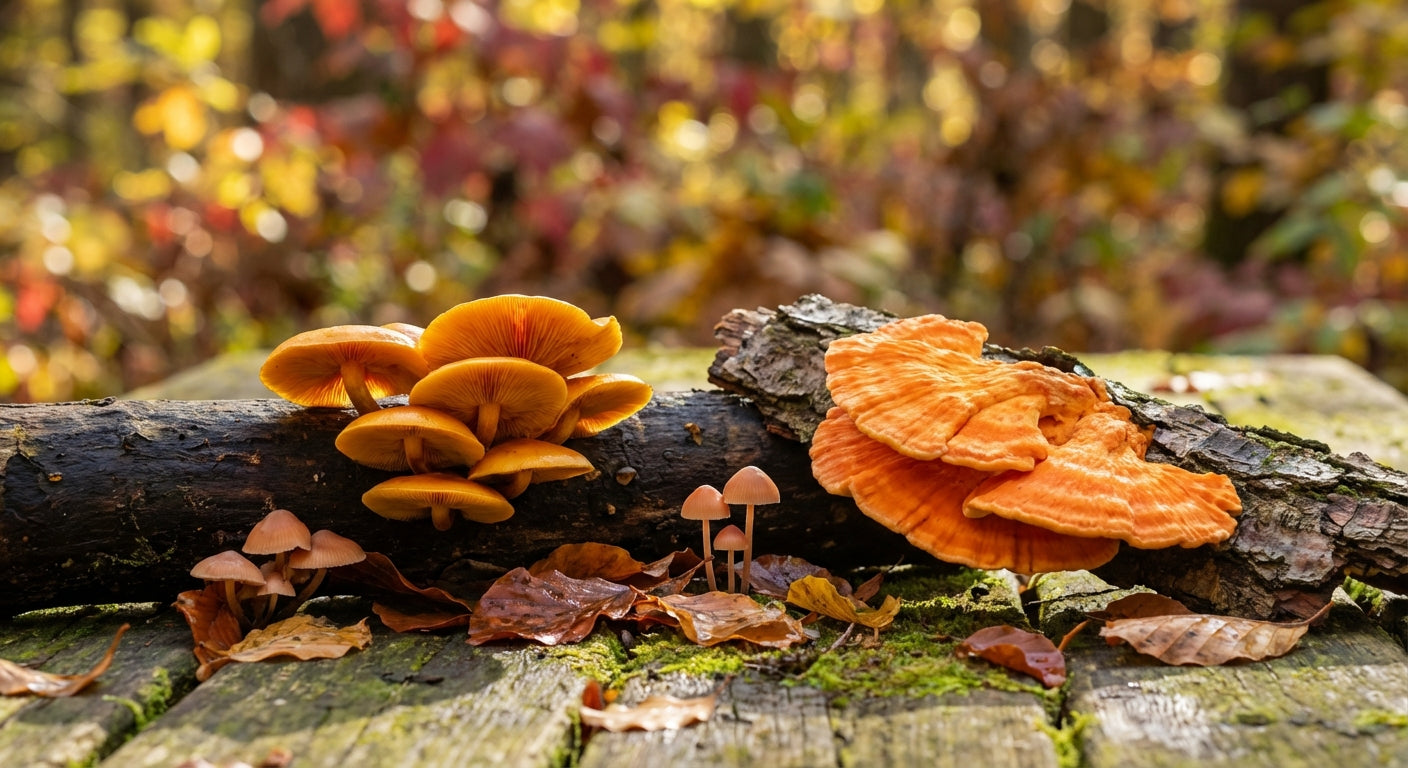
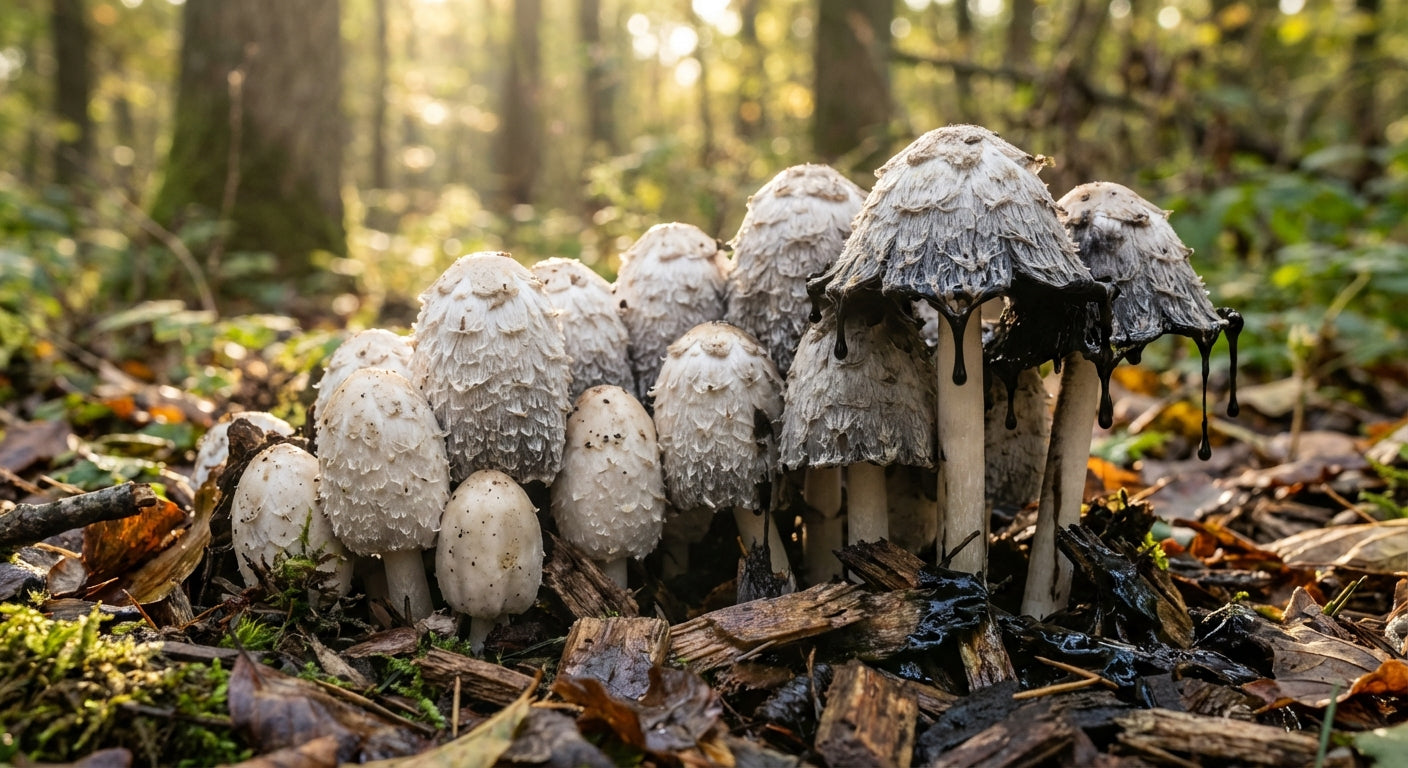
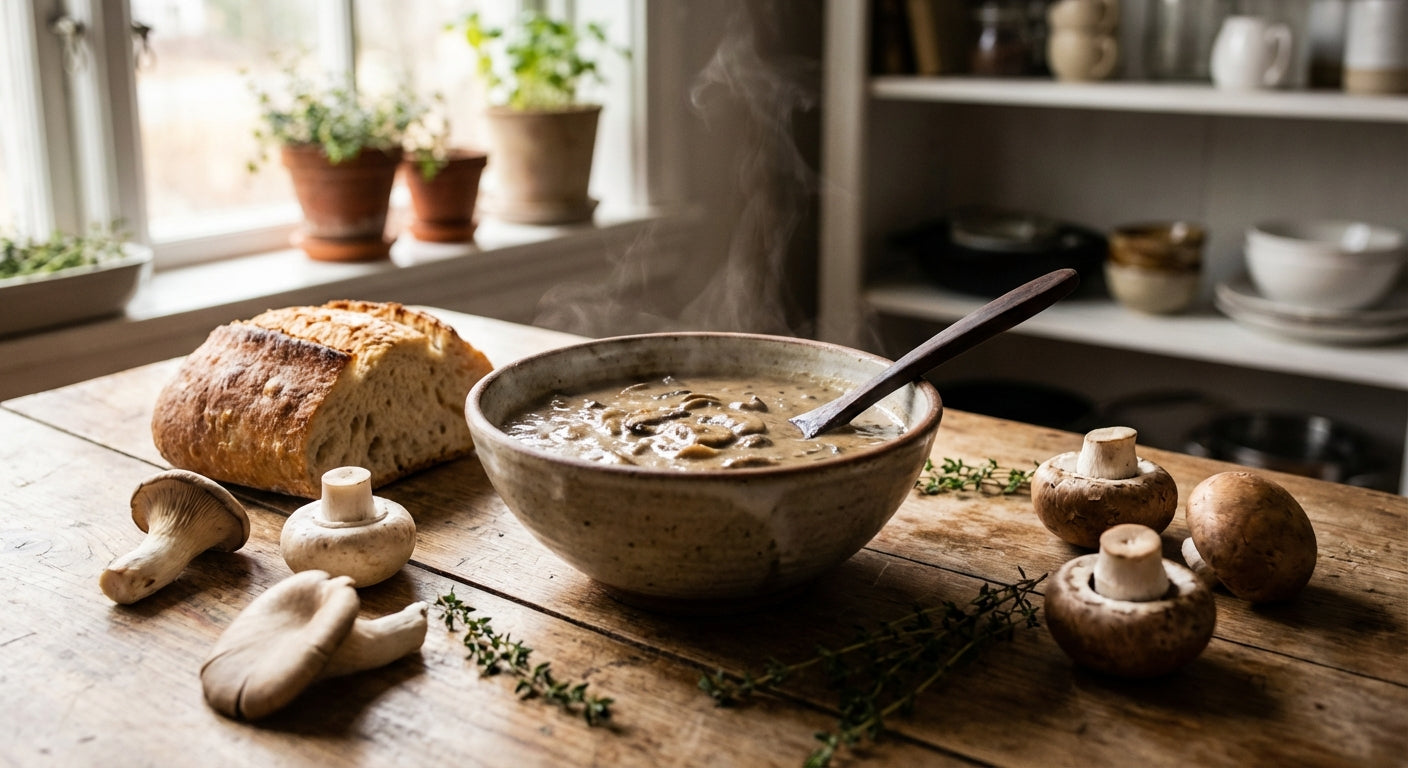
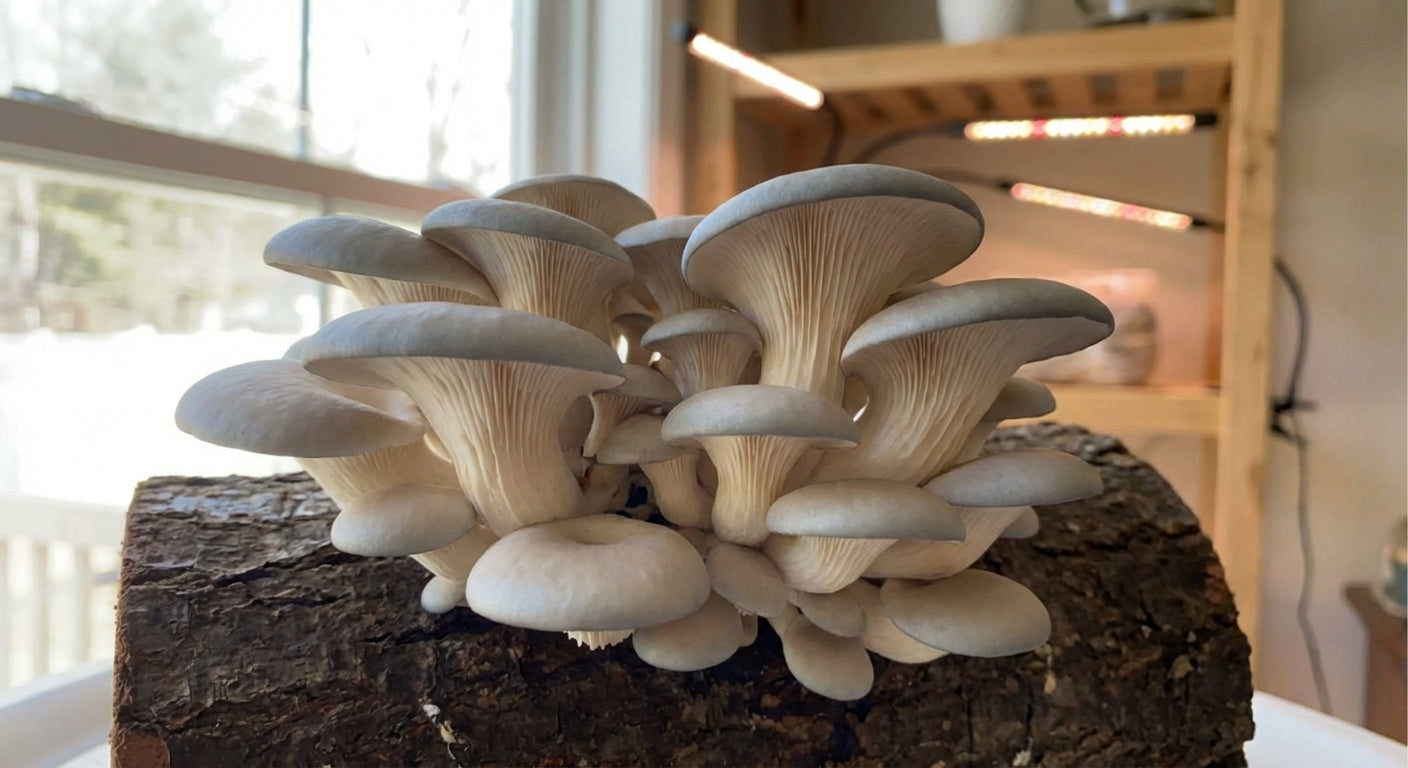
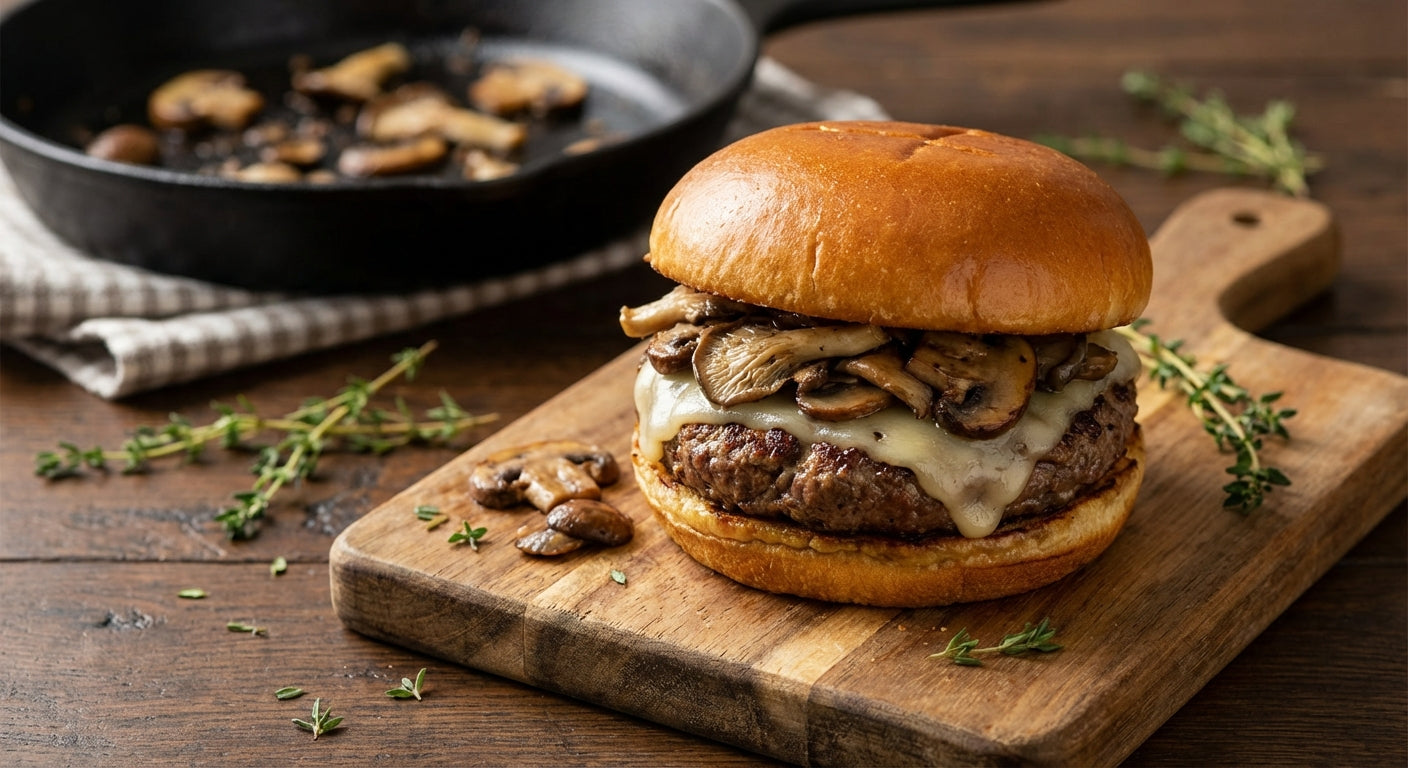



Share:
Reishi Mushroom and Pregnancy: All You Need to Know About Safety and Benefits
Reishi Mushroom Tea: Complete Preparation Guide for Health and Relaxation